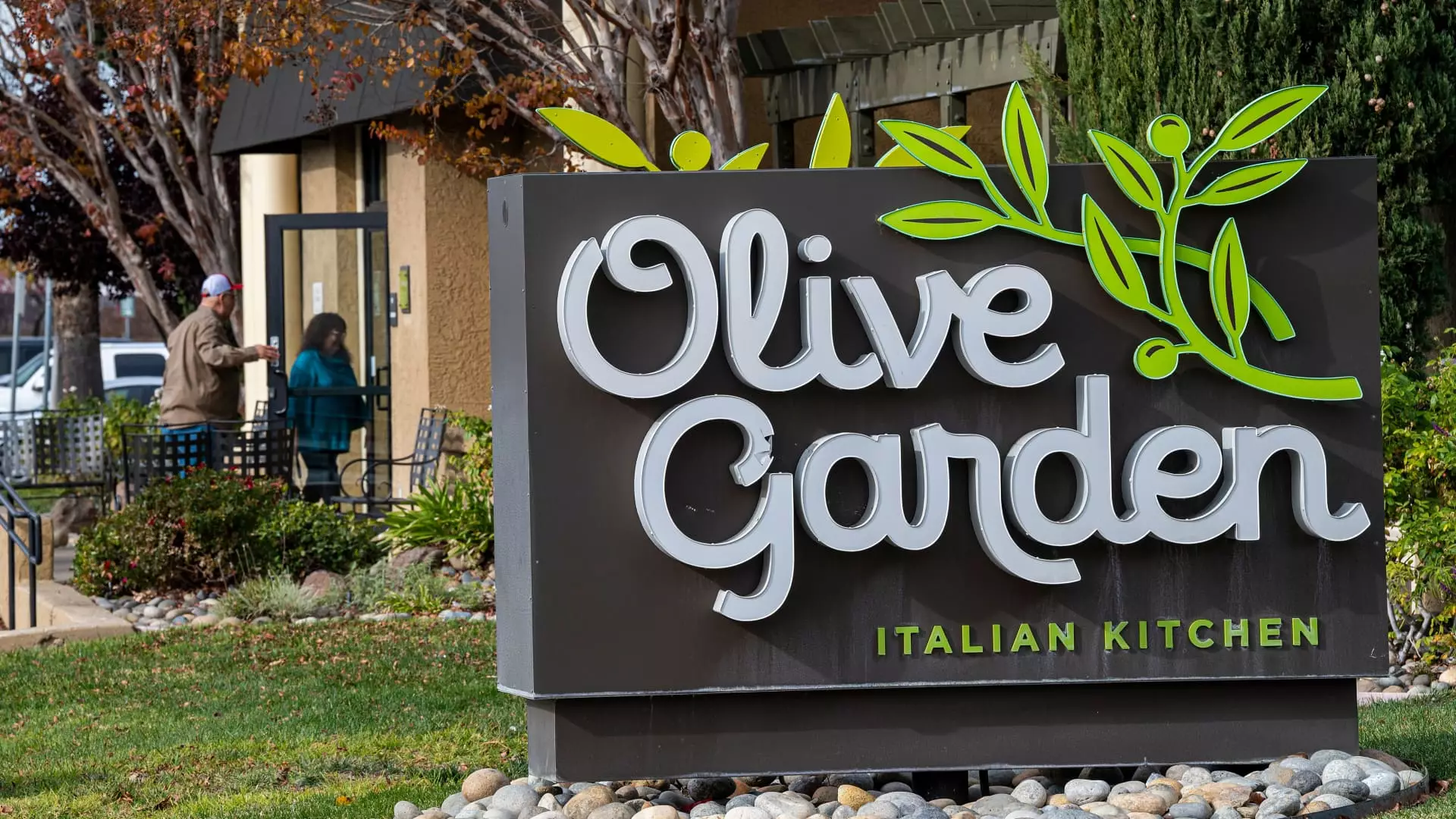Darden Restaurants has defied an uncertain economic climate, showcasing its prowess by exceeding Wall Street expectations in both earnings and revenue. The adjusted earnings per share hit $2.98, just a notch above estimates of $2.97. Revenues also saw a commendable rise, reaching $3.27 billion compared to predictions of $3.26 billion. Such performance demonstrates a resilient business model in a market where numerous dining establishments are struggling to maintain profitability amid economic headwinds.
Despite reporting a slight dip in net income—$303.8 million against $308.1 million the previous year—Darden’s ability to adapt and innovate marks it as a company worth watching in the casual dining sphere. Particularly noteworthy was the growth attributed to its recent acquisition of Chuy’s Tex Mex, which significantly contributed to its performance. This strategic move illustrates an astute understanding of diversification in the restaurant sector, laying the groundwork for sustained future growth.
Same-Store Sales: A Positive Indicator
The company’s same-store sales rose by 4.6%, surpassing StreetAccount’s expectation of a more modest 3.5%. This growth is impressive, especially considering the hesitance of consumers to splurge during economically challenging times. Darden’s flagship brand, Olive Garden, reported a sharp 6.9% increase in same-store sales, which is more than one percentage point above analyst predictions. Meanwhile, LongHorn Steakhouse chipped in with a robust 6.7% growth, encouraging signals pointing toward a broader acceptance of casual dining even as industry pressures persist.
A critical factor contributing to these positive sales figures was the revival of Olive Garden’s “Buy One Take One” promotion, which has proven successful and resonated well with consumers looking for value during moments of inflationary pressure. It’s these strategic initiatives that allow Darden to maintain its competitive edge in a sector increasingly dominated by quick-service restaurants. Instead of succumbing to market pressures, Darden is effectively pivoting to meet consumer demand for quality dining experiences.
Future Outlook: Cautiously Optimistic
Darden provided an optimistic forecast for fiscal 2026, projecting revenue growth between 7% and 8% driven, in part, by an additional week of sales that year. Management expects adjusted earnings per share in a promising range of $10.50 to $10.70. Even amid signs indicating a slowdown in consumer spending, CEO Rick Cardenas remains confident in the resilience of casual dining, emphasizing that people are still willing to spend their disposable income on experiences zoals restaurant dining.
This optimism is bolstered by a demographic shift: more upper-income households are returning to restaurants. With significant income brackets favoring Darden’s offerings, the company can position itself advantageously for the future. The management understands the necessity for adaptability in today’s market and has shown a willingness to implement necessary changes, enabling it to keep pace with consumer preferences.
Challenges Ahead: A Mixed Bag
Despite the sunny outlook, challenges loom. Darden’s fine dining segment, encompassing prestigious establishments like Ruth’s Chris Steak House, reported a concerning 3.3% decline in same-store sales. This could hint at a broader trend affecting fine dining across the country, as consumers may be opting for more casual, cost-effective options. While upper-income demographics are visiting restaurants more often, it’s essential for Darden to not overlook the importance of this fine dining segment.
Moreover, the company’s decision to close 15 Bahama Breeze restaurants amid speculation about the future of that brand is worrisome. Such strategic shifts indicate that not all aspects of Darden are thriving, and it will need to ensure its other brands can fill the gaps. The consideration of potential sales or conversions shows both foresight and caution, but they also underscore that not every venture is meeting performance expectations.
Share Repurchase and Market Response
Strongly aligned with shareholder interests, Darden’s board of directors authorized a substantial $1 billion share buyback program. This backing for share repurchase can often be perceived as a favorable vote of confidence in the company’s financial health, aiming to boost shareholder value in challenging times. Following this announcement, Darden’s stock saw a nearly 2% uptick, indicating that investors are responding positively to the company’s strategic direction.
As of recent trading, Darden stock has enjoyed a solid year-to-date increase of around 19%. This reflects a growing investor trust in the company’s future, but the question remains: Can Darden sustain and build on this momentum amid evolving market conditions? While there’s room for optimism, challenges in specific segments must be carefully navigated to assure ongoing success.

